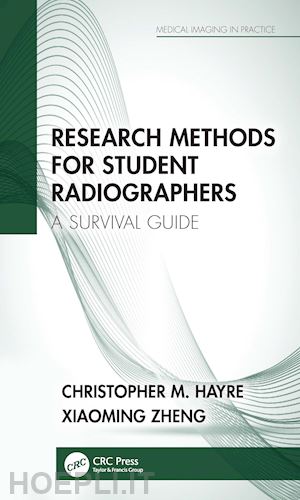This book provides an holistic picture of the application of research in radiography and focuses on multivariant methodological approaches and practices. It will provide readers insight into both contemporary and innovative methods within radiography research, backed up with evidence-based literature. This book may also be translated into other health disciplines as it introduces research to the reader by detailing terms that can often be confusing for students. These remain central in understanding the importance of research in radiography and how the generation of new knowledge is obtained. This will be supported with subsequent chapters concerning the literature, formation of research questions and detail the early beginnings of a research proposal. Chapters will include a wide range of topics, such as quantitative and qualitative methodologies and data collection tools pertinent to radiographic research, whilst discussing data analysis and need for rigor. The authors draw from our experiences, published outputs and clinical work, supported with alternate philosophies and methods used in diagnostic radiography. Each chapter will examine the multifaceted use and application of each ‘sub-theme’ pertinent to research in radiography, which is presented in a single text for students and, perhaps, practitioners. The targeted audience for this book is interdisciplinary but clearly focuses on those studying undergraduate radiography in response to the limited texts available. We also anticipate it to provide a useful tool for academics delivering undergraduate radiography programmes and those supporting postgraduate research. The key features will: Explore important research approaches and concepts within diagnostic radiography Provide contemporary evidence-based practice regarding mixed method approaches Provide a ‘how to guide’ for understanding key research principles in a wide range of radiographic settings Evaluate the impact of research on patients and the radiographer–patient relationship











